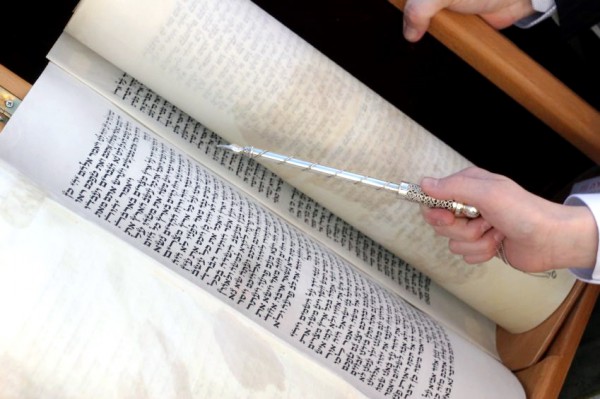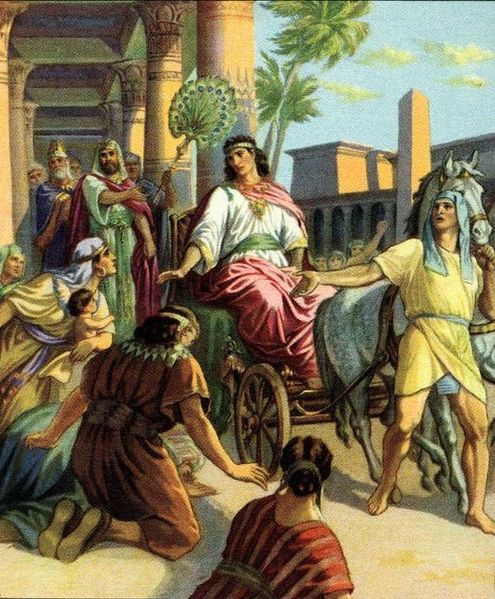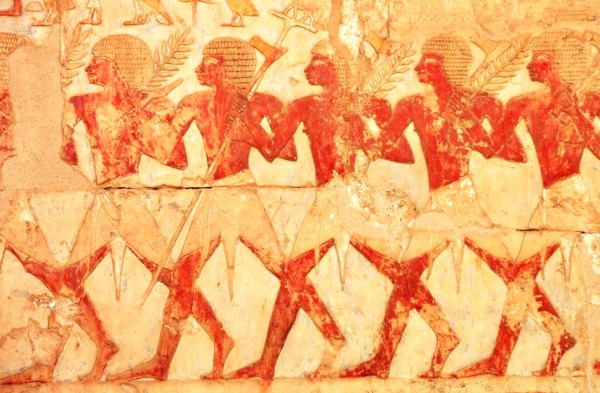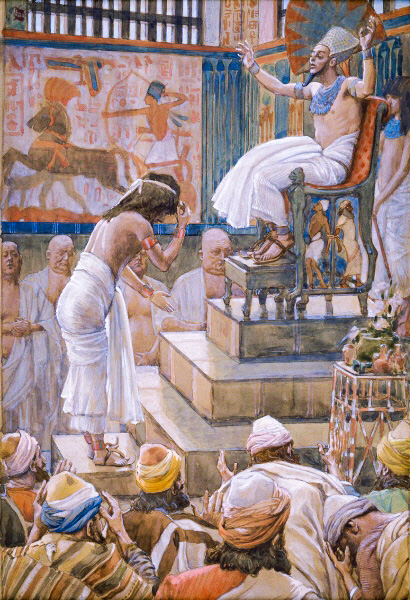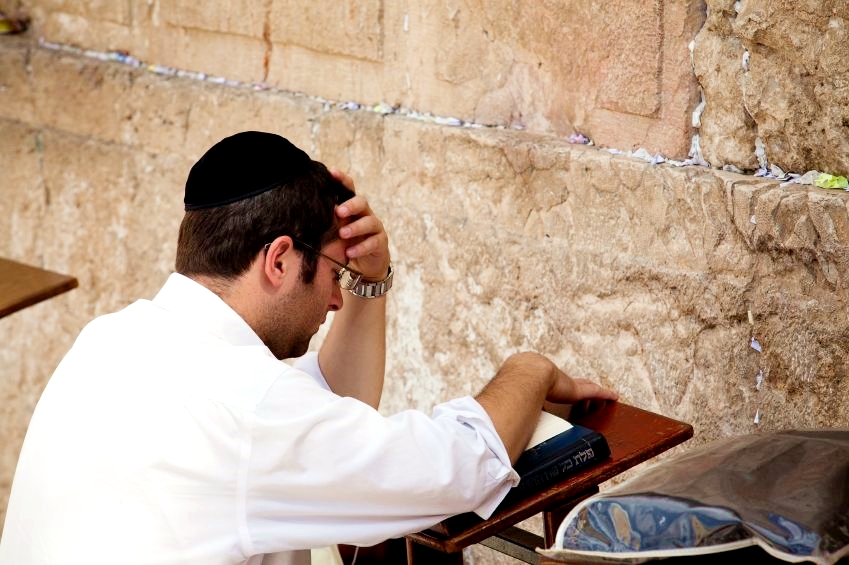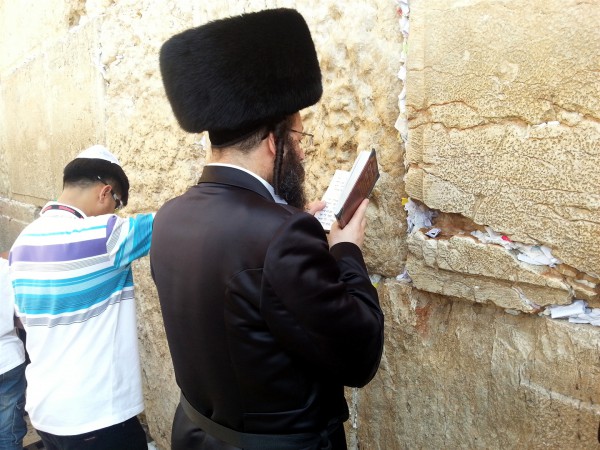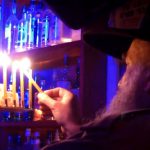Parasha Miketz (At the End)
Genesis 41:1–44:17; 1 Kings 3:15–4:1; Matthew 27:13–46
“So Pharaoh sent for Joseph, and he was quickly brought from the dungeon. When he had shaved and changed his clothes, he came before Pharaoh.” (Genesis 41:45)
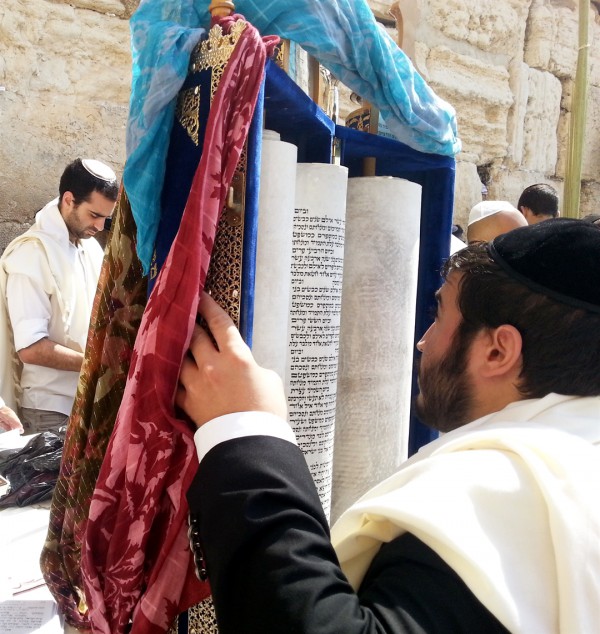
A Jewish man at the Western (Wailing) Wall prepares to lift up the Torah scroll for all to see. This custom is called hagbah.
Last week, in Parasha Vayeshev, Joseph (Yoseph) was persecuted by his brothers and treated unjustly by others.
His own brothers threw him into a pit and sold him to slave traders. In Egypt, he was sold to Potiphar, the captain of the palace guard, who had him thrown in prison on the false charge of raping his wife.
Although he languished in prison, his talents made a way for him.
Besides amazing administrative skills, Joseph showed an uncanny accuracy in interpreting prophetic dreams.
It was here in prison that he interpreted the dream of Pharaoh’s cupbearer. (Genesis 40:13–14)
Despite Joseph accurately predicting the cupbearer’s release, and his plea to be remembered, the cupbearer seemed to forget about Joseph as soon as he was out of jail.
As disappointing as that must have been for Joseph, it does seem that it was part of God’s plan for Joseph to be forsaken and forgotten in prison, since that left him in the right place to fulfill his destiny at the right time.
This week’s Parasha takes up the story two years after this incident. It begins with Pharaoh having a disturbing dream that no one can interpret. It is only then that the cupbearer (butler) remembers Joseph.
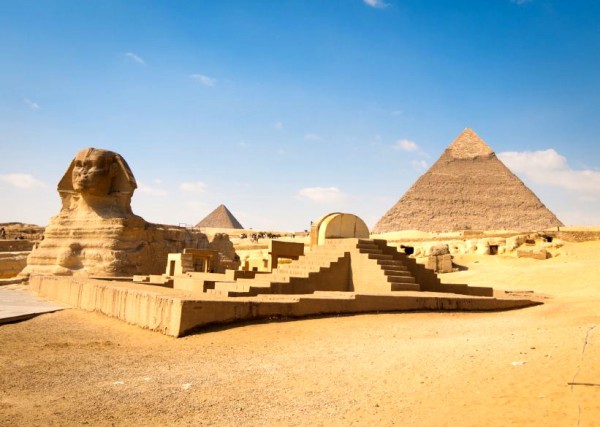
Pyramids of Giza with Sphinx in foreground: Joseph may have wondered why he was in an Egyptian prison, since from a young age he was aware that leadership was his destiny. Even an Egyptian prison could not prevent the destiny God had planned for him, despite all the dismal twists and turns.
When Pharaoh sent for Joseph, he didn’t waste any time by telling Pharaoh the story of his unjust imprisonment. Instead, Joseph was careful to explain to Pharaoh that God had the answer.
“Pharaoh said to Joseph, ‘I had a dream, and no one can interpret it. But I have heard it said of you that when you hear a dream you can interpret it.’
‘I cannot do it,’ Joseph replied to Pharaoh, ‘but God will give Pharaoh the answer he desires.’” (Genesis 41:15–16)
Despite years of hardship and suffering, Joseph’s trust in God was still unwavering.
As Joseph delivered to Pharaoh the interpretation of the dream, he explained to him that the dream was in fact a revelation from God that there would be a season of plenty, followed by a season of famine and lack.
“Then Joseph said to Pharaoh, ‘The dreams of Pharaoh are one and the same. God has revealed to Pharaoh what He is about to do.’” (Genesis 41:25)
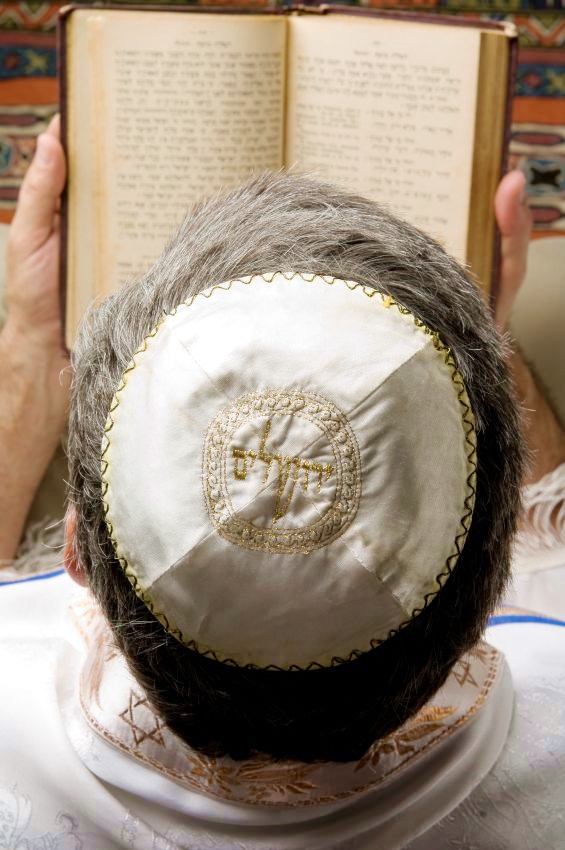
A Jewish man wearing a tallit (prayer shawl) and a kippah (head covering) recites prayers from a siddur (Jewish prayer book).
Wisdom and the Prophetic Dream
“Joseph said: ‘And now let Pharaoh look for a discerning and wise man and put him in charge of the land of Egypt. Let Pharaoh appoint commissioners over the land to take a fifth of the harvest of Egypt during the seven years of abundance.’” (Genesis 41:33–34)
This Jewish son of Jacob was no ordinary interpreter of dreams. Pharaoh had plenty of educated, gifted men who could do such things, but they could not interpret a revelation from God.
Joseph was head and shoulders above all of Pharaoh’s scholarly wise men.
He was not only a wise, prudent and practical man, but he heard from the God of his great grandfather Abraham, and the same God who spoke to his grandfather Isaac and his father Jacob.
Through God’s gifting, Joseph discerned the meaning of the dream, wisely determined the proper course of action, and boldly informed Pharaoh about how to manage the coming crisis.
Likewise, we must also be wise, prudent and practical people, knowing how to act upon the insights God gives us as we hear the voice of the Lord.
In the same way that it was evident to Pharaoh that God had filled Joseph with His Spirit of wisdom, it should be evident to those around us that as Believers, we receive supernatural wisdom.
Indeed, the word of God promises us wisdom.
“If any of you lacks wisdom, let him ask of God, who gives to all liberally and without reproach, and it will be given to him.” (James 1:5)
Many of us lack confidence in our ability to make wise decisions. But wisdom is “more precious than rubies, and all the things we may desire cannot compare with her (Proverbs 3:15),” so we must take hold of this promise in James and ask in faith for wisdom, without doubting.
Yoseph and Yeshua: Sustainers of Life
“Man shall not live by bread alone but by every word that proceeds out of the mouth of God.” (Matthew 4:4)
Pharaoh gave Joseph the Egyptian name Zaphenath-paneah, which some scholars suggest means the one who furnishes the nourishment of life.
Interestingly enough, Yeshua (Jesus) referred to Himself as the Bread of Life (Lechem Chayim in Hebrew).
“I am the bread of life. Whoever comes to Me will never go hungry, and whoever believes in Me will never be thirsty.” (John 6:35)
Just as Yoseph (Joseph) provided physical sustenance for the people, thus preventing them from perishing, Yeshua provides spiritual sustenance, in order that all who believe in Him will not perish, but have everlasting life!
“For God so loved the world that He gave His one and only Son, that whoever believes in Him shall not perish but have eternal life.” (John 3:16)
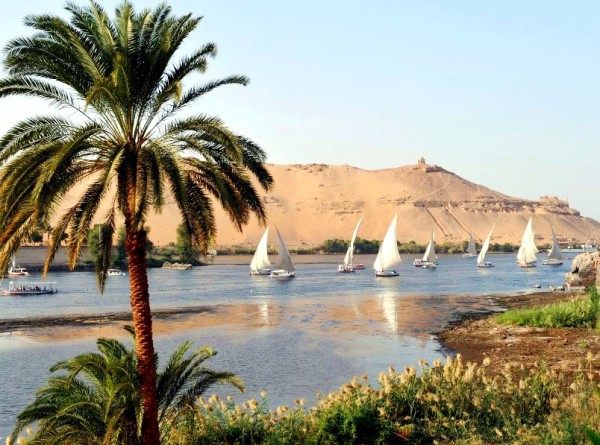
The Nile, the longest river in the world: The Nile’s waters were credited as an unending source of sustenance, as its silt deposits from yearly overflow made the land fertile enough to cause the Egyptian civilization to flourish. Pharaoh learned through Joseph that God is the source of Egypt’s sustenance.
Yeshua and Yoseph: Hidden Identities
“Joseph knew his brethren, but they did not know him.” (Genesis 42:8)
Because Joseph’s name had been changed to an Egyptian name, his Hebrew identity was concealed from his brothers when they went to Egypt to buy food.
The Messiah’s Hebrew name “Yeshua” has also been changed to the Gentile Latin name Lesous, in English Jesus, and other names in other languages.
This is one important factor that has prevented the Jewish People from recognizing Him as their Hebrew brother, Messiah, and King.
It’s disturbing to see how Yeshua has been removed from His Jewish context and changed into a ‘Gentile Jesus.’ Some Christian children’s videos even portray Him breaking bread made with yeast on Easter, instead of breaking matzo (unleavened bread) on Pesach (Passover).
What’s more, the pagan, commercialized and man-made holiday of Christmas presents a magical bestower of gifts, Santa Claus, and a Gentile-styled baby Jesus to displace the prophetic birth of the Messiah.
The Fullness of the Gentiles
“I do not want you to be ignorant of this mystery, brothers and sisters, so that you may not be conceited: Israel has experienced a hardening in part until the full number of the Gentiles has come in.” (Romans 11:25)
This week’s Torah portion points to the prophetic destiny of Israel.
Joseph’s transformation into ‘an Egyptian’ was part of God’s plan for the salvation of Israel. Likewise, Yeshua became a Gentile to the Gentiles, in order that salvation may come to them, until the fullness of the Gentiles has come in.
This small word until is significant. For when this time arrives, the temporary blindness that has happened to Israel will be lifted and “all Israel will be saved.” (Romans 11:15–16)
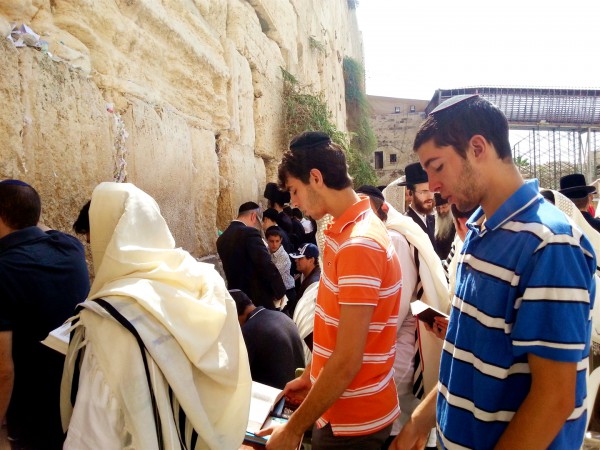
Jewish men pray at the Western (Wailing) Wall in Jerusalem. As a retaining wall for the Temple Mount, this last remnant of the Temple is considered holy.
At the time of the fullness of the Gentiles, the Jewish brethren of Yeshua (almost six million here in Israel, and about 14 million worldwide) will recognize Him as their brother and their Savior.
Of course, no one knows when the “fullness of the Gentiles” will be, but Scripture gives us a clue, and it has to do with Jerusalem:
“And Jerusalem will be trampled by Gentiles until the times of the Gentiles are fulfilled.” (Luke 21:24)
The city of Jerusalem remained under Gentile, foreign rule for around 2000 years, until 1967.
Israelis were overcome with emotion at the historic and prophetic significance of returning this last remnant of the Holy Temple into Jewish hands, after centuries of being ‘trampled by Gentiles.’
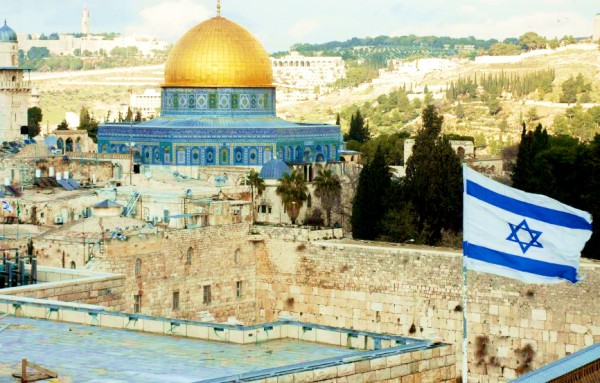
Today, the Dome of the Rock sits on the Temple Mount, where the First and Second Temples once stood and where the Third Temple will be rebuilt. This must take place according to prophecy, along with the return of Yeshua the Messiah as the long awaited Messiah of the Jewish People.
However, we are still not allowed to pray on the Temple Mount because the Islamic Dome of the Rock (Mosque) is standing where the Temple in Jerusalem once stood. Still, according to Scripture, the Temple will be rebuilt.
We can be certain that we are living in a time of transition.
A veil is being lifted on both sides: Jewish brethren are beginning to recognize Yeshua, and Christian brethren are beginning to see ‘Jesus’ as the Jewish Hebrew Messiah, Yeshua.
The true identity of Yeshua is slowly but surely being revealed, just as the true identity of Joseph was revealed to his brothers.
Guilt and Forgiveness
“We are indeed guilty concerning our brother….” (Genesis 42:21)
Just as Joseph’s brothers admitted their guilt with sincere remorse and repentance, so will the Jewish People one day confess their sins and find divine forgiveness in Yeshua.
Messianic Prophecy – Zechariah 12:10
“And I will pour on the house of David and on the inhabitants of Jerusalem the Spirit of grace and supplication; then they will look on Me whom they pierced. Yes, they will mourn for Him as one mourns for his only son, and grieve for Him as one grieves for a firstborn.”
What was Joseph’s reaction to his brothers’ confession of guilt?
Was he angry with them? Did he condemn them? No, quite the contrary: he was moved to tears of compassion and forgave them.
Joseph tried to minister comfort to his brothers, assuring them that even the wrong they did was within God’s plan for the salvation of many lives during the terrible famine.
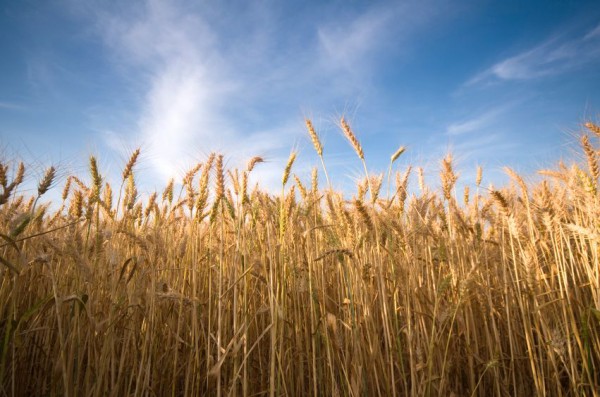
Though the actions of Yoseph’s (Joseph’s) brothers seem unforgivable, Yoseph reassured them that their betrayal was part of a bigger plan for their salvation from starvation.
Similarly, the sacrifice of Yeshua to make atonement for our sins was within the perfect will of God, in order that ‘none would perish, but repent and be saved.’
Yeshua, like Joseph, is willing to forgive all who come to Him with sincere remorse for their sins.
“If we confess our sins, He is faithful and just to forgive us our sins and to cleanse us from all unrighteousness.” (1 John 1:9)
Jew or Gentile–it doesn’t matter, because although Yeshua (Jesus) came first for the lost sheep of the House of Israel, He also came to be a Light to the Nations. He is the Messiah and Savior of all mankind.
“But you, Bethlehem, in the land of Judah, are by no means least among the rulers of Judah; for out of you will come a ruler who will shepherd my people Israel.” (Matthew 2:6)




